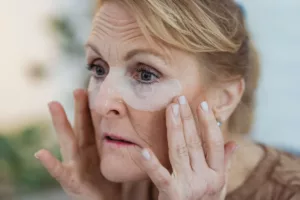How Science Shapes Your Youthful Complexion

When it comes to the pursuit of youthful, radiant skin, the world of skincare offers an array of products promising to turn back the hands of time. But have you ever wondered about the science behind these anti-aging ingredients in skincare? What makes them so effective in combating the signs of aging? In this article, we’ll take a deep dive into the science of anti-aging skincare, shedding light on the key ingredients that can help you achieve a more youthful complexion.
Understanding the Aging Process
Before we explore anti-aging ingredients, it’s essential to understand the aging process itself. Aging skin undergoes various changes, including decreased collagen production, loss of elasticity, increased dryness, and the formation of wrinkles and fine lines. These changes are influenced by both intrinsic factors (genetics) and extrinsic factors (sun exposure, pollution, lifestyle choices).
The Role of Collagen
Collagen is the structural protein that keeps our skin firm and supple. As we age, collagen production naturally declines, leading to sagging and the formation of wrinkles. To combat this, many anti-aging skincare products focus on stimulating collagen production or preventing its breakdown.
Retinoids
One of the most scientifically proven anti-aging ingredients is retinoids, which are derivatives of vitamin A. Retinoids work by increasing collagen production, promoting skin cell turnover, and reducing the appearance of fine lines and wrinkles. They can also help fade age spots and improve skin texture.
Retinoids come in various forms, including prescription-strength retinoids like tretinoin and over-the-counter options like retinol. It’s essential to introduce retinoids gradually into your skincare routine to minimize potential irritation.
Antioxidants
Free radicals, unstable molecules produced by factors like UV radiation and pollution, can damage skin cells and accelerate aging. Antioxidants are powerful compounds that neutralize free radicals, protecting the skin from oxidative stress.
Vitamin C, for example, is a potent antioxidant commonly found in skincare products. It helps brighten the skin, fade hyperpigmentation, and improve overall skin tone. Vitamin E and green tea extract are other antioxidants often used in anti-aging formulations.
Hyaluronic Acid
Hyaluronic acid is a naturally occurring substance in the skin that holds moisture, keeping it hydrated and plump. As we age, the skin’s hyaluronic acid levels decrease, contributing to dryness and the appearance of fine lines.
Skincare products containing hyaluronic acid help replenish the skin’s moisture barrier, resulting in a smoother, more youthful complexion. These products work by attracting and retaining water in the skin, providing a visible plumping effect.
Peptides
Peptides are short chains of amino acids that serve as the building blocks of collagen and elastin. When applied topically, peptides can stimulate collagen production, reducing the appearance of wrinkles and promoting firmer skin.
Certain peptides, such as palmitoyl pentapeptide-4 (Matrixyl), have shown promising results in clinical studies for their ability to improve skin elasticity and firmness.
Sunscreen: Prevention is Key
While many anti-aging ingredients focus on reversing signs of aging, sunscreen is perhaps the most crucial preventive measure. UV radiation from the sun is a significant contributor to premature aging, causing wrinkles, fine lines, and sunspots.
Applying a broad-spectrum sunscreen with at least SPF 30 daily helps protect the skin from harmful UV rays, preventing further damage and preserving your youthful appearance.

The Importance of Patience
It’s important to note that skincare is not a one-size-fits-all solution, and results may vary from person to person. Additionally, patience is key when using anti-aging products, as it often takes weeks or even months to see significant improvements.
When incorporating new products into your skincare routine, it’s advisable to perform a patch test and introduce them gradually to minimize the risk of irritation or adverse reactions. Consulting with a dermatologist or skincare professional can also help you tailor a regimen that suits your skin’s unique needs.
In conclusion, the science behind anti-aging skincare is grounded in a deep understanding of the skin’s biology and the factors that contribute to aging. By incorporating proven ingredients like retinoids, antioxidants, hyaluronic acid, peptides, and sunscreen into your routine, you can take proactive steps to maintain youthful, radiant skin. Remember that consistency and patience are key, and always prioritize sun protection to prevent further damage. With the right knowledge and products, you can embark on a journey toward healthier, more youthful-looking skin.

